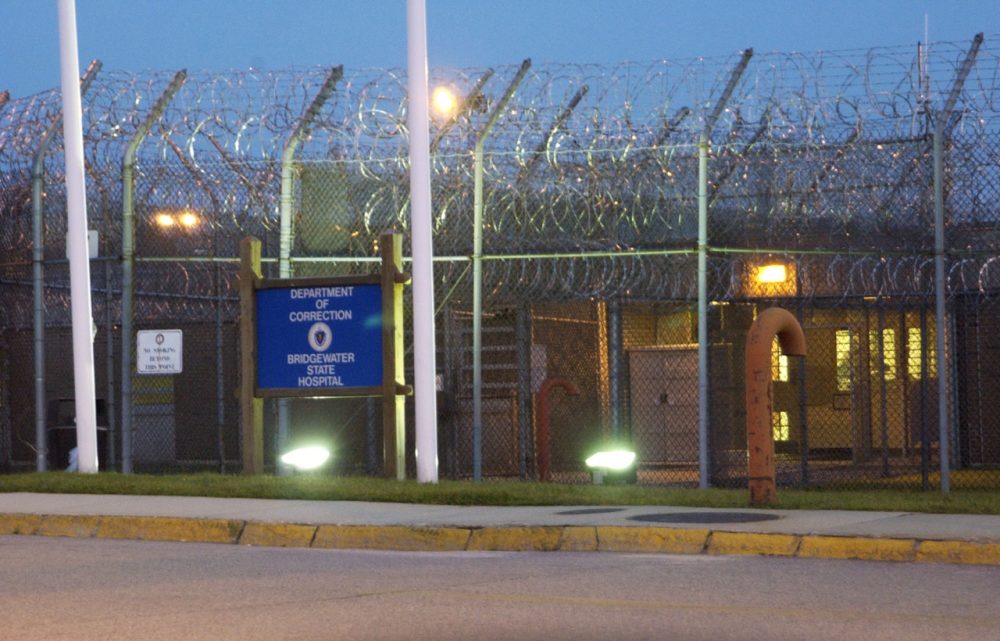Advertisement
Watchdog Group Reports Poor Conditions At Bridgewater State Hospital

Patients are shackled to beds, kept in solitary confinement and treated like criminals — even though they haven't been convicted of anything.
The conditions at Bridgewater State Hospital are so bad that a federal watchdog group has called for major changes, including handing the facility over to new management.
According to the report, it's because Massachusetts is one of only two states in the country where the Department of Corrections oversees mental health facilities like Bridgewater.
Critics say that needs to change, and that the DOC runs the facility more like a prison than a hospital for patients with serious, often dangerous, psychological conditions. And, they say, treating them like felons can sometimes worsen their conditions.
Guest
Stan Eichner, director of litigation for the Disability Law Center.
Highlights
On Bridgewater State Hospital:
Stan Eichner: "We found a substantial amount of excessive and inappropriate seclusion and restraint. We found that the facility fails to provide appropriate treatment care and psychological psychiatric care to the patients, that they are not complying with the state law which limits restraint and seclusion — when it can be done — and instead is used to punish and discipline patients in violation of their own regulations. It also is a problem that they are not complying with the federal integration mandate of Olmsted which means treating people with disabilities in the least restrictive way appropriate to their needs."
On how the "hospital" is identified:
SE: "It’s a hospital in name only. It is a prison. It was run like a prison. It was run by the Department of Corrections. The overall staff at the prison are correctional officers. They are not mental health treatment individuals — there is mental health treatment but they are a relatively small number of people. In fact, one of the key things that must change is there has to be a significant increase in the number of mental treatment staff as opposed to correction staff."
On Department of Corrections running the mental health facility in Massachusetts:
SE: "It doesn’t make sense. It’s not best practice, it’s not medium practice, it’s worst practice."
On comparisons to other states:
Marcia Fowler: "If you looked at all of the 48 states carefully, you’d find themes and variations on how the criminal justice system and the mental health system interact. I think that most individuals who have been committed to correctional facilities and have been convicted for crimes are serving those sentences in correctional facilities. Those individuals who have not been found competent to stand trial we are committed, and we believe that the people who have not been convicted of crimes should be directed towards the appropriate mental health treatment."
On the 2009 death of Joshua Messiah, a mental health patient who was forcibly subdued and died as a result of punishments:
SE: "That fatality at Bridgewater State Hospital is one of a very small number of people who have actually died from restraint, and seclusion was one of the precipitating events for the Globe investigation. So, it’s awful, it’s horrific that it happened but I wouldn’t want to mislead our listeners that people are dying all the time from improper restraint, seclusion. But what is happening is that the number of restraint and seclusion are 100 times higher in this facility than in equivalent mental health facilities. The numbers are literally off the chart. And why? It’s because it’s a prison. A prison is not designed to provide effective and appropriate treatment to people with serious mental illness, and as a result one of the few tools that correctional officers have is restraint and seclusion called the ITU, the so-called Intensive Treatment Unit. It’s seclusion, it’s segregation, and people are sent there for any number of reasons — punishment, their medication is non-compliant, because some patients ask to go there because there’s no quiet space, no treatment space. Imagine trying to deliver high quality or even medium quality psychological treatment in a prison. The two are non-compatible and that’s why [there's] such excessive inappropriate usage restraint at this facility."
On moving non-criminal patients out of Bridgewater:
SE: "We commend that effort on behalf of this governor, this has been a longstanding problem. He’s jumped into it, he’s convinced stakeholders and he came up with this proposal, so we could give it a B. That is, it’s good. It’s a significant step. The problem is, most specifically, that it transfers to most situations but we think Massachusetts should join the other 48 states and have all of these patients provided appropriate treatment by the department of mental health, not most of them."
More
The Boston Globe: Scathing Study Cites Bridgewater Practices
- "A federally funded watchdog group is demanding sweeping reforms at troubled Bridgewater State Hospital, charging that prison officials are not qualified to run the mental health facility and that guards and clinicians routinely violate safety rules and the rights of patients."
This article was originally published on July 16, 2014.
This segment aired on July 16, 2014.